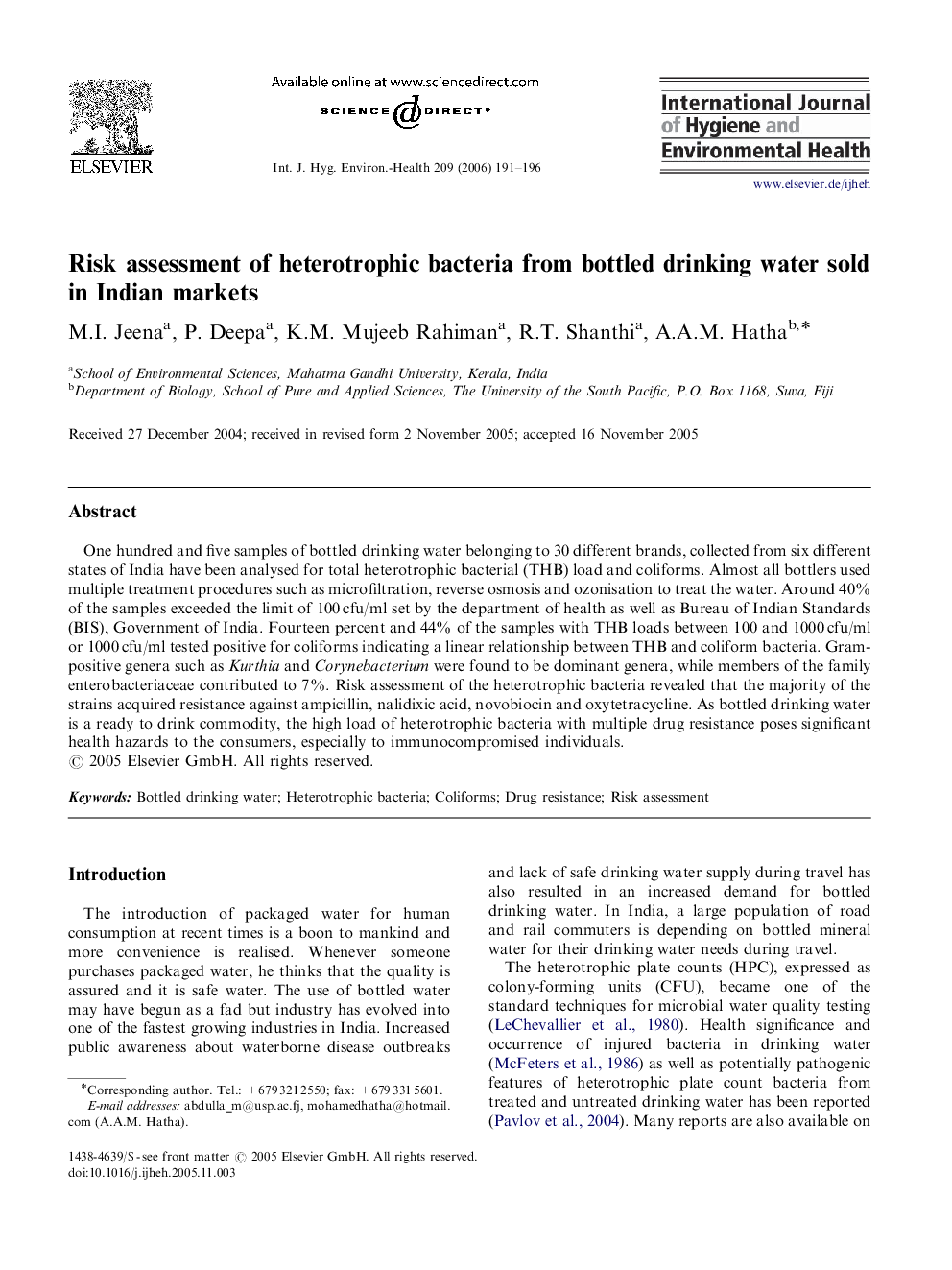| Article ID | Journal | Published Year | Pages | File Type |
|---|---|---|---|---|
| 2589065 | International Journal of Hygiene and Environmental Health | 2006 | 6 Pages |
One hundred and five samples of bottled drinking water belonging to 30 different brands, collected from six different states of India have been analysed for total heterotrophic bacterial (THB) load and coliforms. Almost all bottlers used multiple treatment procedures such as microfiltration, reverse osmosis and ozonisation to treat the water. Around 40% of the samples exceeded the limit of 100 cfu/ml set by the department of health as well as Bureau of Indian Standards (BIS), Government of India. Fourteen percent and 44% of the samples with THB loads between 100 and 1000 cfu/ml or 1000 cfu/ml tested positive for coliforms indicating a linear relationship between THB and coliform bacteria. Gram-positive genera such as Kurthia and Corynebacterium were found to be dominant genera, while members of the family enterobacteriaceae contributed to 7%. Risk assessment of the heterotrophic bacteria revealed that the majority of the strains acquired resistance against ampicillin, nalidixic acid, novobiocin and oxytetracycline. As bottled drinking water is a ready to drink commodity, the high load of heterotrophic bacteria with multiple drug resistance poses significant health hazards to the consumers, especially to immunocompromised individuals.
